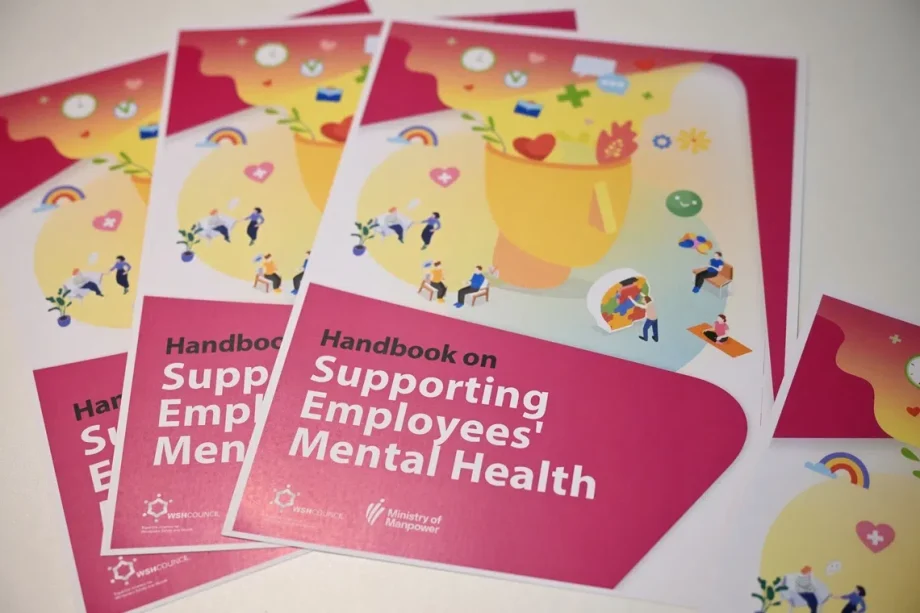SINGAPORE – A new handbook to help employers better support their staff’s mental health has been launched by the Workplace Safety and Health (WSH) Council.
The recommendations in the handbook cover topics such as how to nurture a positive culture for workplace mental health, how to set up workplace support systems, and how to help employees recovering from mental health conditions return to work with confidence.
The 40-page document also features case studies from local organisations, including small and medium-sized enterprises (SMEs), on how they have implemented measures that support mental health at the workplace.
The handbook’s recommendations are voluntary and flexible, and companies can adopt the practices based on their specific needs and implementation flexibility.
They were developed by a tripartite workgroup under the WSH Council’s Mental Well-being Committee following extensive consultation with unions, human resources practitioners and social service agencies.
The handbook was launched on Oct 13 at the Well-being Champions Network’s engagement session, where companies came together to discuss mental health matters at the A*Star Infuse office at Connexis.
Senior Parliamentary Secretary for Manpower Shawn Huang, who was the guest of honour at the event, said that according to the Ministry of Health’s National Population Health Surveys, the prevalence of poor mental health has been broadly rising – from 12.5 per cent of the adult population to 15 per cent in 2023.
Mr Huang pointed out that Singapore has come far from a time when mental health care meant patients need to be in a custodial setting where they are institutionalised and cared for. Instead, individuals with mental health conditions can now be empowered to live independently and contribute meaningfully.






